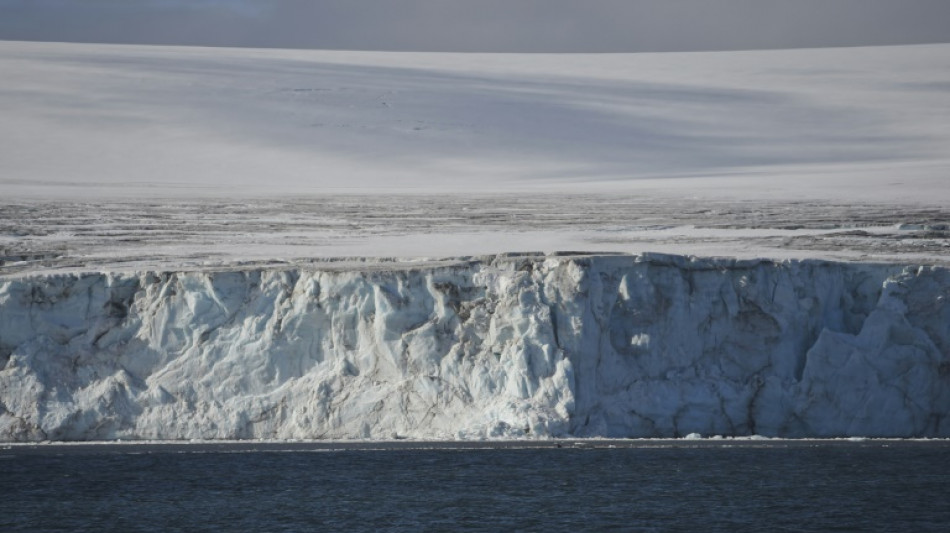
-
 California begins probe of Musk's Grok over sexualized AI images
California begins probe of Musk's Grok over sexualized AI images
-
Astronauts set to leave ISS in first-ever medical evacuation

-
 Napoli's stalemate with Parma opens door for Serie A leaders Inter
Napoli's stalemate with Parma opens door for Serie A leaders Inter
-
Syrian leader urges Kurdish integration as army sends troops east of Aleppo

-
 Denmark says White House talks failed to alter US designs on Greenland
Denmark says White House talks failed to alter US designs on Greenland
-
Venezuela looking to 'new era' after Maduro ouster, says interim leader

-
 Mane takes dominant Senegal past Egypt into AFCON final
Mane takes dominant Senegal past Egypt into AFCON final
-
UK police admit 'mistakes' over Maccabi Tel Aviv fan ban

-
 Promoter says Joshua will return to ring when 'time is right' after horror crash
Promoter says Joshua will return to ring when 'time is right' after horror crash
-
California investigating Grok AI over lewd fake images

-
 Wales's Faletau set to miss bulk of Six Nations
Wales's Faletau set to miss bulk of Six Nations
-
Denmark, Greenland wrap up crunch White House talks

-
 England sweating on Fin Smith's fitness for Six Nations opener
England sweating on Fin Smith's fitness for Six Nations opener
-
NASA acknowledges record heat but avoids referencing climate change

-
 England rugby league coach Wane quits role
England rugby league coach Wane quits role
-
Oil prices extend gains on Iran worries
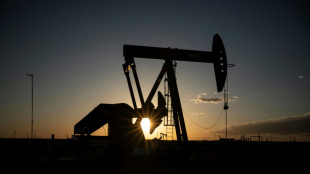
-
 European basketball pioneer Schrempf lauds 'global' NBA
European basketball pioneer Schrempf lauds 'global' NBA
-
Denmark, Greenland in crunch White House talks as Trump ups pressure

-
 Mitchell hits ton as New Zealand down India to level ODI series
Mitchell hits ton as New Zealand down India to level ODI series
-
Syrian army tells civilians to stay away from Kurdish positions east of Aleppo

-
 Spurs sign England midfielder Gallagher from Atletico Madrid
Spurs sign England midfielder Gallagher from Atletico Madrid
-
Russian captain tried to avoid North Sea crash: court
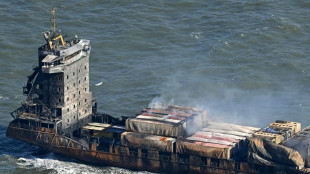
-
 Battle over Chinese-owned chipmaker Nexperia rages in Dutch court
Battle over Chinese-owned chipmaker Nexperia rages in Dutch court
-
Transatlantic ties 'disintegrating': German vice chancellor

-
 Five problems facing Ukraine's new defence chief
Five problems facing Ukraine's new defence chief
-
Italian influencer Ferragni acquitted in Christmas cake fraud trial

-
 UK interior minister says 'lost confidence' in police chief over Maccabi fan ban
UK interior minister says 'lost confidence' in police chief over Maccabi fan ban
-
Ryanair hits out at 'stupid' Belgium over aviation taxes

-
 Burkina Faso sack coach Traore after AFCON exit
Burkina Faso sack coach Traore after AFCON exit
-
African manufacturers welcome US trade deal, call to finalise it

-
 What happens when fire ignites in space? 'A ball of flame'
What happens when fire ignites in space? 'A ball of flame'
-
Death of author's baby son puts Nigerian healthcare in spotlight

-
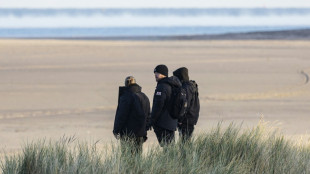 France bans 10 British anti-migrant activists
France bans 10 British anti-migrant activists
-
2025 was third hottest year on record: climate monitors

-
 Hydrogen planes 'more for the 22nd century': France's Safran
Hydrogen planes 'more for the 22nd century': France's Safran
-
Julio Iglesias, the Spanish crooner who won global audience

-
 'We can't make ends meet': civil servants protest in Ankara
'We can't make ends meet': civil servants protest in Ankara
-
UK prosecutors appeal Kneecap rapper terror charge dismissal

-
 UK police chief blames AI for error in evidence over Maccabi fan ban
UK police chief blames AI for error in evidence over Maccabi fan ban
-
Oil prices extend gains on Iran unrest

-
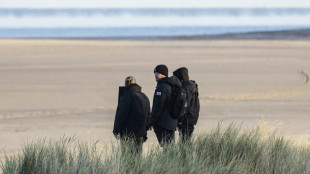 France bans 10 UK far-right activists over anti-migrant actions
France bans 10 UK far-right activists over anti-migrant actions
-
Every cent you take: Sting, ex-Police band mates in royalty battle

-
 Thailand crane collapses onto train, killing 32
Thailand crane collapses onto train, killing 32
-
Amateur stuns star-studded field to win 'One Point Slam' in Melbourne

-
 Italian influencer Ferragni awaits verdict in Christmas cake fraud trial
Italian influencer Ferragni awaits verdict in Christmas cake fraud trial
-
Louvre and other French museums fare hikes for non-European visitors

-
 Japan's Takaichi to dissolve parliament for snap election
Japan's Takaichi to dissolve parliament for snap election
-
Dutch court hears battle over Nexperia

-
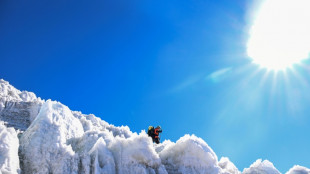 World-first ice archive to guard secrets of melting glaciers
World-first ice archive to guard secrets of melting glaciers
-
Ted Huffman, the New Yorker aiming to update top French opera festival


Runaway W. Antarctic ice sheet collapse not 'inevitable': study
The runaway collapse of the West Antarctic Ice Sheet -- which would trigger catastrophic sea level rise -- is not "inevitable", scientists said Monday following research that tracked the region's recent response to climate change.
As global temperatures rise, there is mounting concern that warming could trigger so-called tipping points that set off irreversible melting of the world's massive ice sheets and ultimately lift oceans enough to drastically redraw the world map.
New research published Monday suggests a complex interaction of factors affecting the melting of the West Antarctic Ice Sheet, which is home to the enormous and unstable Pine Island and Thwaites glaciers -- nicknamed the "Doomsday glacier" -- that together could raise global sea levels by more than three metres (10 feet).
Using satellite imagery as well as ocean and climate records between 2003 and 2015, an international team of researchers found that while the West Antarctic Ice Sheet continued to retreat, the pace of ice loss slowed across a vulnerable region of the coastline.
Their study, published in the journal Nature Communications, concluded that this slowdown was caused by changes in ocean temperatures that were caused by offshore winds, with pronounced differences in the impact depending on the region.
Researchers said that this raises questions about how rising temperatures will affect the Antarctic, with ocean and atmospheric conditions playing a key role.
"That means that ice-sheet collapse is not inevitable," said co-author Professor Eric Steig from the University of Washington in Seattle.
"It depends on how climate changes over the next few decades, which we could influence in a positive way by reducing greenhouse gas emissions."
The researchers observed that while in one region, in the Bellingshausen Sea, the pace of ice retreat accelerated after 2003, it slowed in the Amundsen Sea.
- 'Blink of an eye' -
They concluded that this was down to changes in the strength and direction of offshore surface winds, which can change the ocean currents and disturb the layer of cold water around Antarctica and flush relatively warmer water towards the ice.
Both the North and South pole regions have warmed by roughly three degrees Celsius compared to late 19th-century levels, nearly three times the global average.
Scientists are increasingly concerned that the Pine Island and Thwaites glaciers have reached a "tipping point" that could see irreversible melting irrespective of cuts to greenhouse gas emissions.
Anders Levermann, a climate scientist at the Potsdam Institute for Climate Impact Research who was not connected to the latest study, welcomed the approach of bringing together multiple observations and records, although the study period was "the blink of an eye in ice terms".
"I think we still have to live and plan and do our sea level projections and coastal planning with a hypothesis that the West Antarctic Ice Sheet is destabilised and we will get three and a half meters of sea level rise just from this area of the planet alone," he said, adding however that this would happen "over centuries to millennia".
The United Nation's science advisory panel for climate change, the IPCC, has forecast that oceans will rise up to a metre by the end of the century, and even more after that.
Hundreds of millions of people live within a few metres of sea level.
While cutting planet-warming emissions is seen as the first and most important way to halt the melting of the West Antarctic ice sheet, scientists have also come up with an array of hi-tech suggestions for saving the gargantuan ice shelf and staving off.
Levermann has researched ideas including using snow cannons to pump trillions of tons of ice back on top of the frozen region.
Other suggestions have included constructing Eiffel Tower-sized columns on the seabed to prop it up from below, and a 100m-tall, 100-kilometre-long berm to block warm water flowing underneath.
I.Yassin--SF-PST

